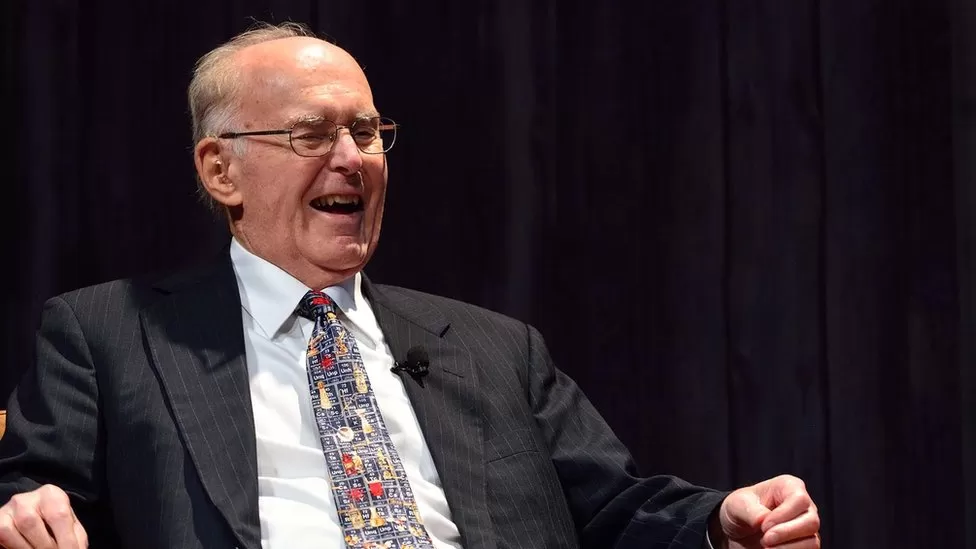El legendario químico, tecnólogo y filántropo Gordon Moore falleció el viernes en su casa de Hawái a la edad de 94 años. Entre otros logros, cofundó la multinacional Intel y acuñó el concepto de “Ley de Moore” (https://ourworldindata.org/
Mr Moore started working on semiconductors in the 1950s and co-founded the Intel Corporation.
He famously predicted that computer processing powers would double every year – later revised to every two – an insight known as Moore’s Law.
That “law” became the bedrock for the computer processor industry and influenced the PC revolution.
Two decades before the computer revolution began, Moore wrote in a paper that integrated circuits would lead “to such wonders as home computers – or at least terminals connected to a central computer – automatic controls for automobiles, and personal portable communications equipment”.
He observed, in the 1965 article, that thanks to technological improvements the number of transistors on microchips had roughly doubled every year since integrated circuits were invented a few years earlier.

After earning his PhD, Moore joined the Fairchild Semiconductor laboratory which manufactured commercially viable transistors and integrated circuits.
The expansion of that company lay the groundwork for the transformation of the peninsula of land south of San Francisco into what is now known as Silicon Valley.
In 1968 Moore and Robert Noyce left Fairchild to start Intel.
Moore’s work helped drive significant technological progress around the world and allowed for the advent of personal computers and Apple, Facebook and Google.
“All I was trying to do was get that message across, that by putting more and more stuff on a chip we were going to make all electronics cheaper,” Moore said in a 2008 interview.
The Intel Corporation paid tribute to its co-founder, saying in a tweet: “we lost a visionary”.
Intel’s current CEO Pat Gelsinger said Gordon Moore had defined the technology industry through his insight and vision, and inspired technologists and entrepreneurs across the decades.
“He leaves behind a legacy that changed the lives of every person on the planet. His memory will live on.
“I am humbled to have known him,” Mr Gelsinger said in a tweet.
Moore dedicated his later life to philanthropy, after starting a foundation with his wife Betty that focussed on environmental causes, known as the Gordon and Betty Moore Foundation.
Among those causes included protecting the Amazon River basin and salmon streams in the US, Canada and Russia.
“Those of us who have met and worked with Gordon will forever be inspired by his wisdom, humility and generosity,” the foundation’s president Harvey Fineberg said.
In 2002, Moore received the Medal of Freedom – the highest civilian honour in the US – from President George W Bush.
Fuente: https://www.bbc.com


